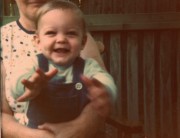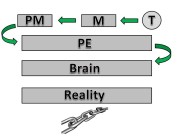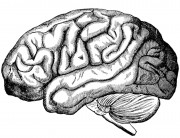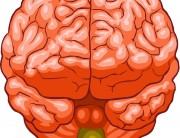 This is a brief outline of the class I teach, called “Understanding Anger” Each of these points is a discussion on its own but I hope they give you the opportunity to think. If you want to talk further about any of them, give me a call or send me an email. I’ll be posting more in-depth notes on many of these topics in the future.
This is a brief outline of the class I teach, called “Understanding Anger” Each of these points is a discussion on its own but I hope they give you the opportunity to think. If you want to talk further about any of them, give me a call or send me an email. I’ll be posting more in-depth notes on many of these topics in the future.
- We are born helpless, with an instinct to attach to others. If we do not attach to others, we will die, since infants can do nothing for themselves. When we are born, the need to attach to others is the most important need of all. Literally nothing is as important as that. If we are not attached to a caregiver, then our other survival needs will not be provided for, meaning that emotional attachment is necessary for our very survival.
- Once we are securely attached to a caregiver, the reflex to attach begins to shrink in terms of importance. Attaching is no longer our number one priority. Instead we begin to learn about the world, about ourselves, about other people.
- Secure attachment allows us to venture out from our secure base, our caregiver, and try out new things. We know that we have a safe place to go back to if things get to be too much. Think of when a child first explores a new place. They may cling to the caregiver and eventually progress to reassuring glances. However, if we push them away from this instinct for safety, we overwhelm their limited coping resources.
- If we have no secure base two things happen:
- Attaching to others remains our number one priority, even though we are no longer physically dependent on others for survival. Our brains don’t outgrow the infant instinct for attachment nor the sense of how important it is, even though this sense is far below the level of conscious awareness.
- Our nervous system is always “on”. It is always ready to react to a perceived threat to our physical survival. Keep in mind that our brains cannot tell the difference between physical and emotional pain, therefore they do not discern between physical and emotional threats. This leads to us losing the ability to tell the difference between a real threat and a false one. I liken this to locking all of your windows and then leaving the front door wide open.
- The physical reflex that we experience as anger is only ever present when our brains perceive a threat to our physical survival. If someone degrades or insults us, we may react with anger. This seems illogical considering the actual purpose of the fight or flight response. An insult is not literally threatening to my survival. The problem is this:
- Our brains are still holding on to the infant’s instinct to attach and that attachment, as far as our brains are concerned, is still directly tied to our survival. We have not outgrown it. Therefore, threats to belonging or threats to our connection with others, in the brain’s eye, actually ARE potential threats to our survival.
- With this in mind, anger is not illogical, nor is there such a thing as an overreaction. There is simply misplaced reaction, based on the logical conclusion of false beliefs. Logic has nothing to do with accuracy or truth, it only has to do with how premises lead to a conclusion. I will write more about this in the future.
- So, when anger arises, we can take the opportunity to ask ourselves a few questions, such as:
- What is causing this reaction? Don’t focus on the content, the actual event that appears to be causing the anger, but focus on what the theme of the event is.
- What is the theme of this event? Disrespect, someone acting better than me, someone putting me down, someone trying to control me, something that I am powerless to change.
- What message do I receive about myself because of this theme? I am useless, I am stupid, I’m not worth having around, I’m no good, I’m inadequate, no one likes me.
- What does that message mean for my physical survival, according to my brain? (If any of those messages are true, then no one will want to be with me, I won’t be able to attach to anyone, and if I’m unattached and alone, then I am in danger of death).
- Following the faulty information that my brain is operating on, is my anger response logical? Yes, it is logical, because you are not reacting to the surface event, but to the perceived threat to your survival.
- Is this actually a threat to my surivival? No, it is not. You are no longer a child, completely dependent on others for your survival, no matter how much it feels like you are.
- Are those messages that are being communicated to me actually true? NO, THEY ARE NOT!!! You are not worthless!!! You ARE worth having around!!! Lots of people like you!!! You are more than adequate!!!
- What evidence do you have that those messages are not true? List the people that like you. List the talents and abilities you have. List the qualities that other people like about you. You are standing up to the bully in your brain.
- When we replay negative events in our mind, our brain is fooled into thinking that they are actually happening at that moment and will begin to react chemically to the false sense of danger that is created. If we repeat negative messages about ourselves, to ourselves, it is the same as if someone else were doing it.
- So, by not beating yourself up for your reaction to the little things (which are actually attached to really big things), by thinking it out after the fact, by seeing yourself as logical, predictable, and normal, you will ease the tension you feel on a daily basis. This reduction in tension will buy you some time to make better decisions. Slowly but surely, you will gain the ability to manage your anger, instead of having it manage you.
Leave me a comment or drop me a line to let me know what you think.


















































Recent Comments